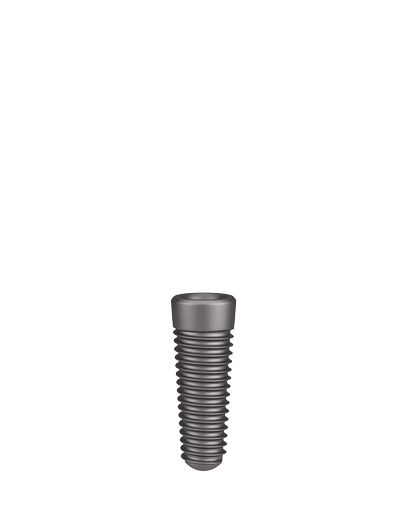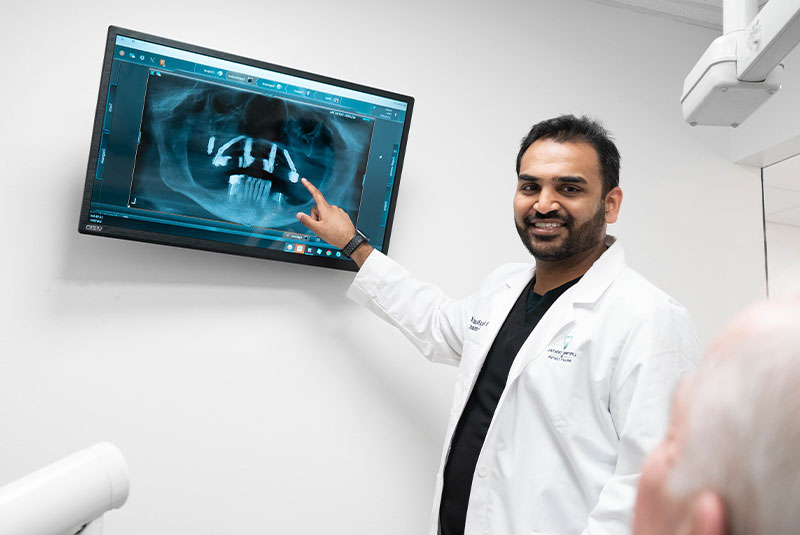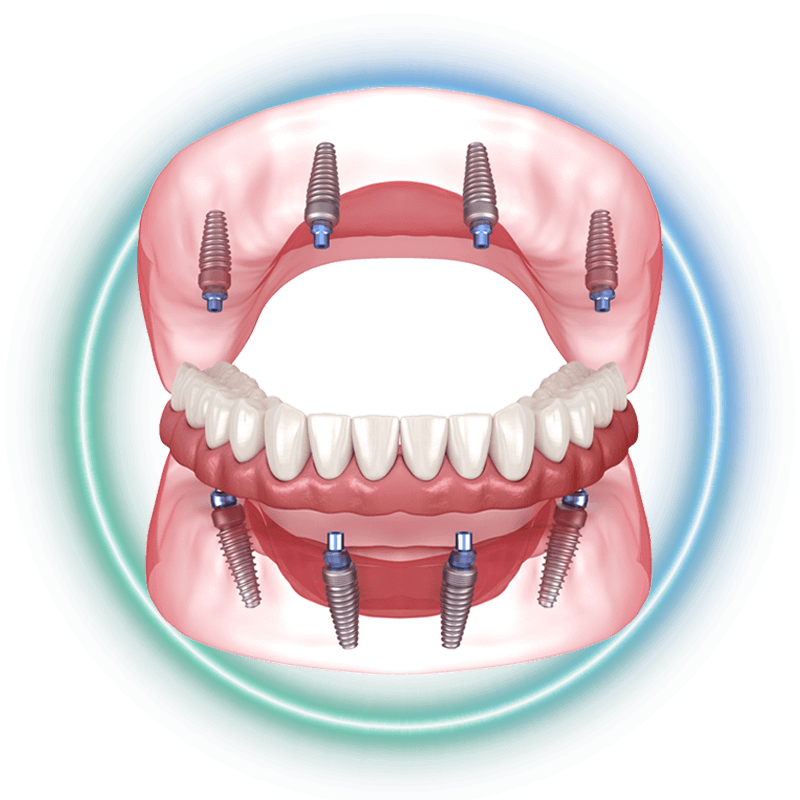

Having missing teeth can cause significant problems in your everyday life. From pestering pain while eating to teeth shifting when they shouldn’t, missing teeth can create lasting issues affecting your entire mouth. The gaps left by missing teeth can make it difficult to eat, speak, and smile comfortably, leading to a range of issues from difficulty chewing to self-consciousness about your appearance. Fortunately, dental implants offer a transformative solution.
These artificial tooth roots provide a sturdy foundation for replacement teeth that look, feel, and function like natural ones. By addressing the root cause of missing teeth, dental implants can restore your smile, enhance your quality of life, and boost your self-esteem, allowing you to enjoy the benefits of a complete and functional set of teeth.

A dental implant is a titanium post surgically inserted into the jawbone to replace a missing tooth. A dental implant comprises three parts: the implant fixture, the abutment, and the dental prosthetic. These parts play a crucial role in creating the implant, making it highly durable.
Dental implants, whether full mouth dental implants or single implants are the preferred tooth restoration solution because the advantages are abundant, such as improved appearance and speech! Whether you’re missing one single tooth, multiple teeth, or a full arch of teeth, dental implants provide superior support and a permanent and aesthetically pleasing choice in tooth restoration.
Debunking the Internet's Biggest Myths About Dental Implants!
We at Lifetime Dental & Implant Center strive to provide excellent, patient-focused dental care in Katy, TX. Our team cares about every patient who walks through our doors, and we pride ourselves in knowing we can provide you with the best service.
Our state-of-the-art procedures and treatments ensure you can be confident you receive top-notch care in a friendly atmosphere. Going to the dentist can be extremely daunting for some, but we at Lifetime Dental & Implant Center want to make your visits as stress-free as possible!


Our comprehensive consultation process is designed to address your unique dental concerns and smile aspirations. During the initial visit, we prioritize understanding your specific needs and goals. We’ll conduct a thorough oral examination and use advanced digital diagnostics to gain a comprehensive insight into your oral structures. This detailed assessment is crucial in determining your eligibility for dental implants. With this information, our team crafts a personalized treatment plan tailored to your needs, ensuring that your implant procedure seamlessly aligns with your expectations. From candidacy assessment to creating a complete smile, our process is dedicated to delivering optimal results and a confident, functional set of teeth designed just for you.
Once your treatment plan is created, we’ll use that to perform your procedure. We’ll administer your preferred sedation option, make small incisions to your jawbone, and place 4-6 implant posts in the areas where the jawbone is most dense. Once the implants are placed, we’ll attach an abutment to the implant and place your temporary prosthetic on top so you can immediately enjoy the benefits of your complete smile!
Over the next 4-6 months, your implants will fuse to your jawbone through osseointegration. This process is crucial to the longevity of your implants as it creates a stable foundation for your smile. Once your implants have fused and your mouth has healed, we’ll place your final prosthesis so you can enjoy a life full of endless, permanent smiles. With proper at-home care and routine checkups, your implants have the potential to last for decades!
I understand the information disclosed in this form may be subject to re-disclosure and may no longer be protected by HIPAA privacy regulations and the HITECH Act.


